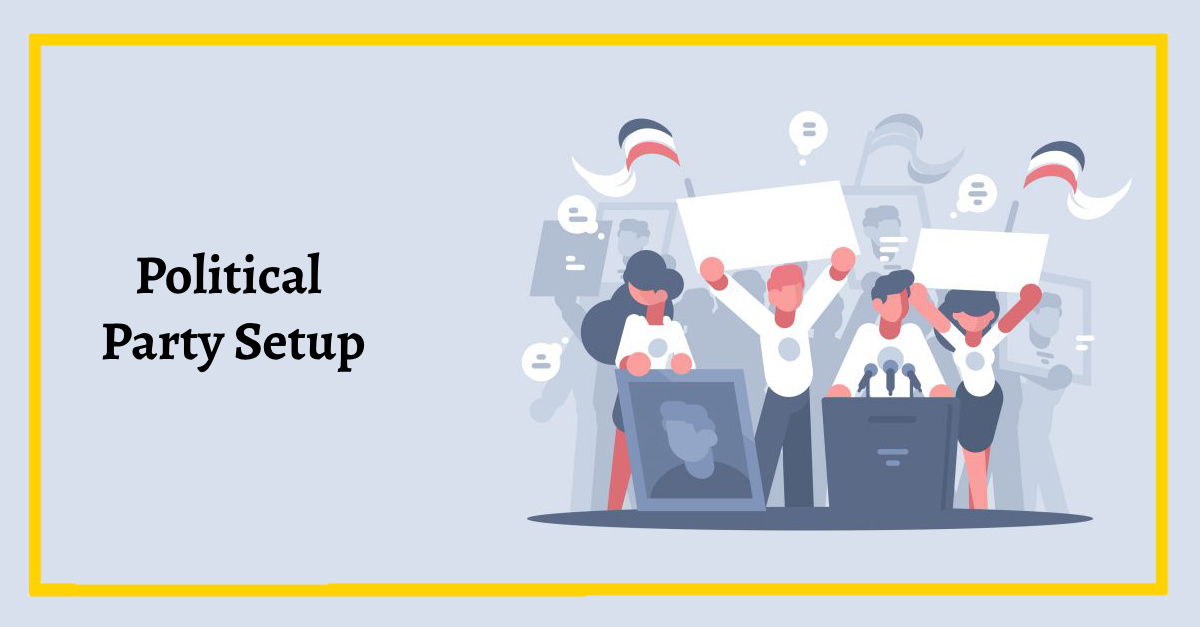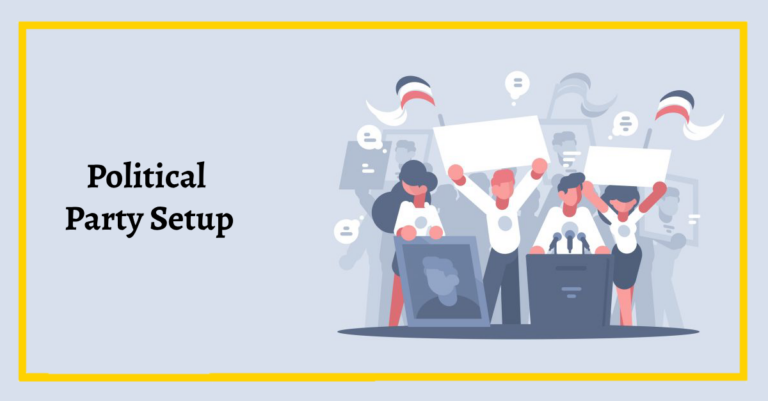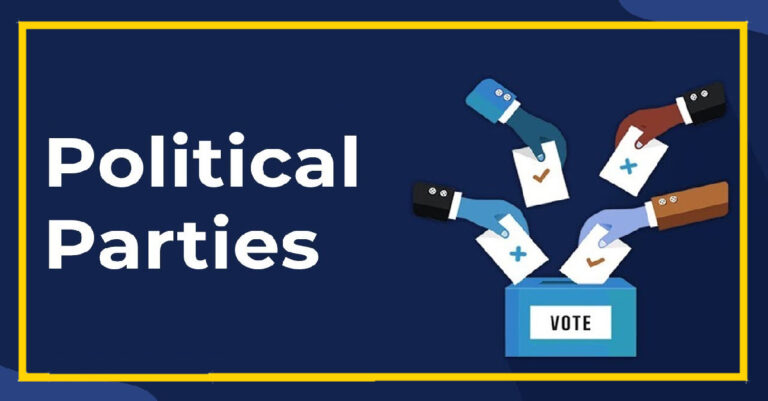This article discusses various real-time cases highlighting the challenges and opportunities related to governance and ethical practices in Indian political parties.
Overview:
The state of Indian democracy rests heavily on the shoulders of its political parties. These entities serve as the foundation for electing representatives and forming governments, ultimately shaping the nation’s future. However, the effectiveness of this system is inextricably linked to the practices within these very parties. This begs the question: how can we ensure good governance and ethical behavior within India’s political party setup?
Existing Challenges
The current political landscape in India faces several challenges that raise concerns about ethical practices and good governance:
- Internal Democracy: Many political parties lack internal democracy, with opaque decision-making processes and limited participation from party members beyond the leadership. This creates an environment vulnerable to nepotism and corruption.
- Dynastic Politics: The prevalence of dynastic succession within parties restricts opportunities for fresh talent and perpetuates power within certain families. This can lead to stagnation and a lack of responsiveness to the changing needs of the electorate.
- Money Power: The influence of money in electoral politics is a significant concern. Political parties often rely heavily on donations from corporations and wealthy individuals, creating a potential for quid pro quo arrangements and policy decisions influenced by vested interests.
- Lack of Transparency: Limited transparency in party finances and decision-making processes fuels public distrust and hinders accountability.
Political Party Setup: Addressing the Issues
To ensure good governance and ethical practices within Indian political parties, several reforms are necessary:
- Strengthening Internal Democracy: Implementing measures such as regular elections within parties, transparent decision-making procedures, and increased participation from members can promote accountability and inclusivity.
- Curbing Dynastic Politics: Encouraging open competition for leadership positions and promoting merit-based selection processes can broaden the pool of talent and reduce the dominance of specific families.
- Electoral Reforms: Limiting campaign spending, increasing transparency in party finances, and regulating the role of money in elections can help level the playing field and reduce the influence of vested interests.
- Transparency and Accountability: Implementing measures such as mandatory disclosure of party finances, regular audits, and accessible information about party activities can enhance public trust and encourage accountability.
Role of the Citizenry
Beyond institutional reforms, the active participation of the Indian citizenry is crucial in shaping a more ethical and accountable political landscape:
- Informed Voting: Engaging in critical analysis of party policies, candidate backgrounds, and voting records can promote informed decision-making and hold elected officials accountable.
- Civic Engagement: Actively participating in public discourse, attending political rallies and debates, and holding elected officials accountable through protests and petitions can bring about positive change.
- Supporting Ethical Parties: Choosing to support and engage with political parties that demonstrably uphold ethical principles and practices can send a powerful message and encourage broader reform.
-
Case 1: Internal Power Struggle and Transparency:
- Party: A prominent national party in India.
- Issue: A long-standing internal power struggle between two factions within the party, leading to opaqueness in decision-making and lack of transparency in financial dealings.
- Ethical Concerns:
- Concentration of power in the hands of a few leaders, stifling dissent and open debate.
- Allegations of misuse of party funds and potential corruption due to limited transparency.
- Concerns over the selection of party candidates and the lack of meritocratic principles.
-
Case 2: Dynastic Politics and Meritocracy:
- Party: A regional party in India with a strong family dynasty dominating leadership positions.
- Issue: The continuous dominance of the same family in leadership roles, raising questions about meritocracy and equal opportunities for other party members.
- Ethical Concerns:
- Lack of fair and open competition for leadership positions within the party.
- Potential for nepotism and favoritism towards family members.
- Risk of stagnation and lack of fresh ideas and perspectives within the party.
-
Case 3: Criminalization of Politics and Public Trust:
- Party: Various parties across different states in India.
- Issue: The presence of elected representatives with criminal records within political parties, eroding public trust and raising concerns about the rule of law.
- Ethical Concerns:
- Undermines the integrity of democratic institutions.
- Sends a message that criminal behavior is acceptable and does not disqualify individuals from holding positions of power.
- Creates a culture of fear and intimidation, hindering the free and fair functioning of democracy.
-
Case 4: Cronyism and Nepotism in Party Appointments:
- Party: A national party in India facing allegations of appointing individuals to key positions based on personal connections rather than competence and merit.
- Issue: Concerns over the selection process for party officials and representatives, raising doubts about transparency and fairness.
- Ethical Concerns:
- Weakens the effectiveness of party leadership and decision-making.
- Discourages qualified individuals from joining the party or participating actively.
- Undermines the public’s faith in the party’s ability to govern effectively.
-
Case 5: Technology for Transparency and Engagement:
- Party: A newly formed regional party in India utilizing technology to promote transparency and engagement with its members and citizens.
- Initiative: The party uses an online platform to:
- Publish financial records and party activities.
- Facilitate open communication and discussions among members.
- Allow citizens to submit questions and suggestions.
- Benefits:
- Increased transparency and accountability within the party.
- Enhanced communication and engagement with members and citizens.
- Creation of a more participatory and democratic political process.
These are just a few examples of real-time cases highlighting the challenges and opportunities related to governance and ethical practices in Indian political parties. Addressing these issues requires a multi-pronged approach involving internal reforms, stricter regulations, increased transparency, and the effective utilization of technology. By working towards a more ethical and accountable political landscape, India can strengthen its democratic institutions and build a brighter future for its citizens.
Conclusion:
Political Party Setup – Building a robust democracy that fosters good governance and ethical practices requires a multi-pronged approach. While institutional reforms are essential, the active participation of the Indian citizenry is equally important. By engaging in informed decision-making, holding elected officials accountable, and supporting ethical parties, we can collectively contribute to a more just and equitable political system in India. Let us continue to strive for a political landscape where power serves the people and ethical practices guide the nation towards a brighter future.











